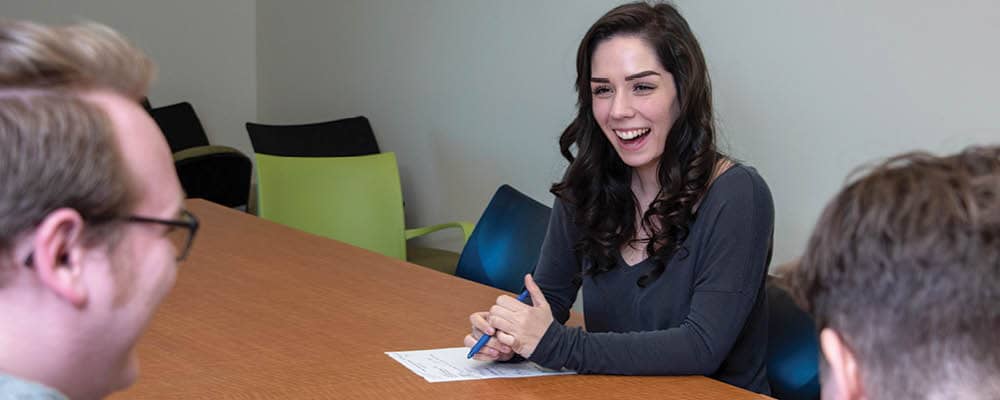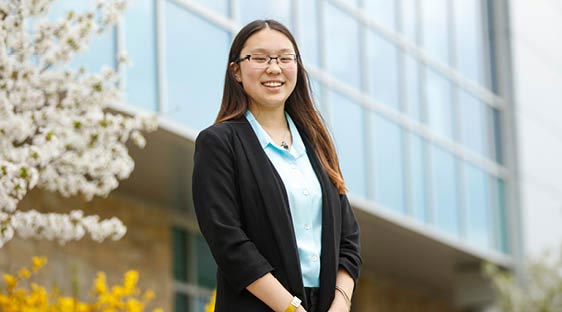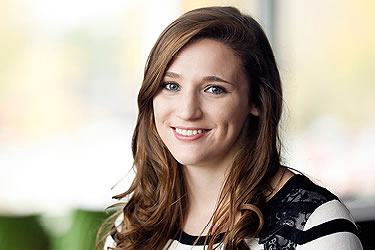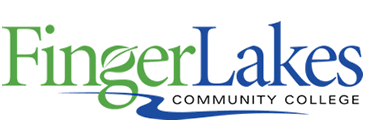Liberal Arts and Sciences
Associate in Arts (A.A.)

Explore a range of topics and discover your passion in our A.A. Liberal Arts program. Earn transfer credits while studying culture and gaining new perspectives on social and political issues.
Career Outlook: Liberal Arts
The outlook for liberal arts graduates is promising, with many career paths available. After completing a bachelor's degree in a related discipline, liberal arts students can pursue careers in advertising, editing, human resources, law, and more.
Liberal arts graduates are adaptable, with over 70% transitioning to different careers between their first and second jobs. The flexibility of a liberal arts education prepares you for the career you want now and the next one. You'll be ready for the evolving demands of future professions.
A.A. Program Overview
Take courses that cover topics you care about. You'll explore social issues and refine your thinking about justice, ethics, and purpose. Coursework focuses on critical thinking, problem-solving, and writing skills in an interdisciplinary framework. Enhance your experience with research opportunities, honors courses, and co-curricular activities.
Tailored Capstone Courses
The Liberal Arts degree culminates in a 200-level capstone course on a topic of your choice. You'll use analytical skills from prior courses to build connections related to the course theme. This prepares you for the next step in your education, whether that's transferring to a four-year institution or some other path. The program offers a wide range of capstone course options, including:
- The Black Death and Beyond
- Communication and Democracy
- Perspectives on Tolkien
- The Psychology of Addiction
- War and Society: World War I and World War II
- World Literature
Explore Your Interests
A Liberal Arts degree allows you to explore various academic interests before committing to one discipline. An estimated 75-85% of all college students switch programs at least once before graduation. This program gives you time to make that choice with confidence.
Taking exploratory courses early in your college career helps you graduate with a degree that matches your goals. Many liberal arts courses are available online, providing flexibility in your class schedule.
A.A. Program Outcomes
Program Learning Outcomes
Upon completion of this degree program, students will be able to:
- Pose insightful and productive questions.
- Generate, evaluate, integrate, and cite compelling evidence to support reasonable conclusions.
- Express connections between disciplines with creativity and clarity.
- Take actionable steps to see tasks through to completion, both independently and collaboratively.
- Consider the impact of individual action on personal and community well-being, for example physical, environmental, social, occupational, and fiscal well-being.
Seamless Transfer Opportunities
After earning a four-year degree in the liberal arts, you'll be ready to pursue career opportunities in a variety of fields, including:
- Anthropology
- Economics
- History
- Philosophy
- Political Science
- Sociology
- World Languages
Low-Cost Tuition and Scholarship Opportunities
Earn a quality education at an affordable rate. With our low cost-per-credit and general scholarship opportunities, you can maximize your potential with minimal debt. 76% of students are eligible for scholarships or financial aid that help with the cost of college.
Faculty
Our faculty hold advanced degrees in English, sociology, philosophy, history, and more. They are all dedicated to the betterment of their students and have years of experience teaching in higher education.
Program Details

Explore Your Career Options
Map out a path toward your future career, and discover opportunities related to this area of study.

"One way my major benefited me is that it gave me freedom to pick and choose certain classes I was interested in taking. It also allowed me to test out certain areas of study that I could later narrow down to a specific major for the years to come."
